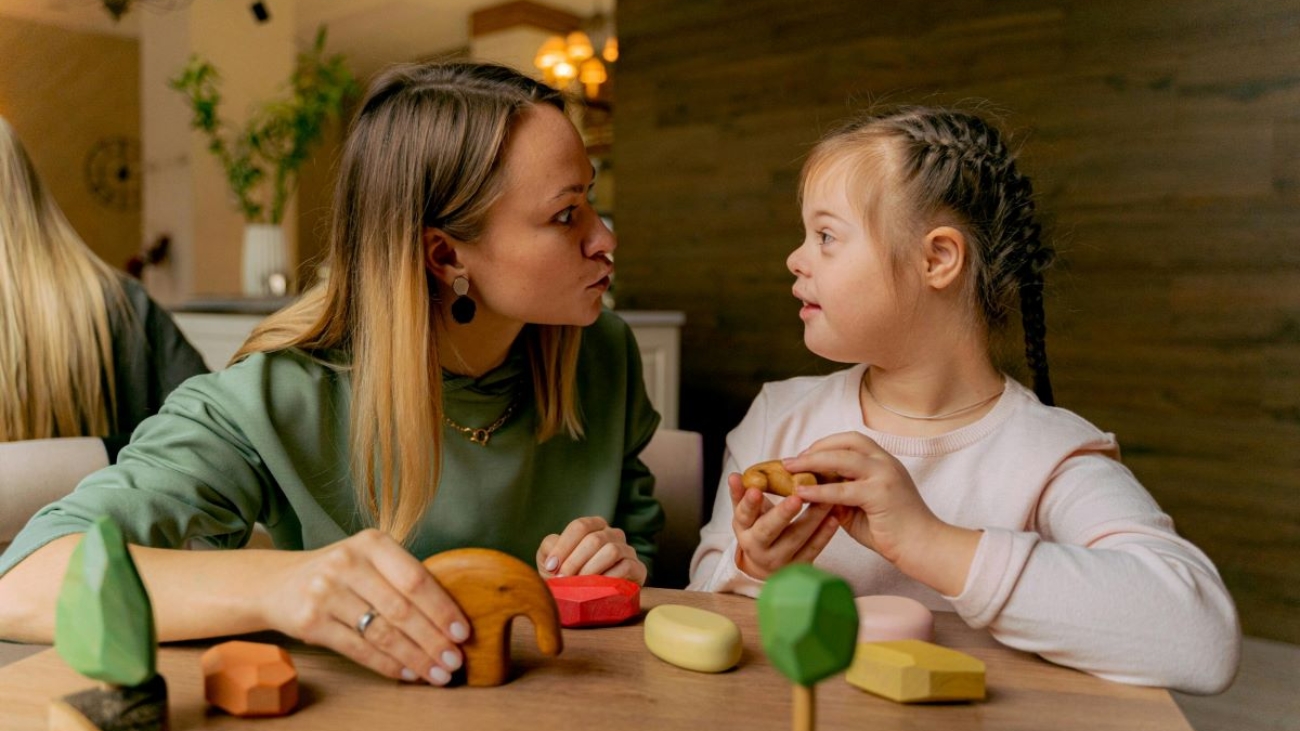Speech development is crucial for a child’s growth as it shapes their ability to communicate, learn, and form meaningful relationships. For children with speech delays, receiving therapeutic support in their home environment creates powerful opportunities for growth and development.
Home-based speech therapy brings specialised support directly into a child’s natural setting, allowing them to develop communication skills where they feel most secure. This personalised approach enables children to:
- Build confidence through familiar surroundings
- Practice skills during daily routines
- Connect with family members in meaningful ways
- Progress at their own unique pace
The benefits of speech therapy at home go beyond traditional clinical settings, creating a supportive foundation for children to develop essential communication abilities. By integrating therapeutic strategies into everyday moments, children gain the tools they need to express themselves clearly and connect with others effectively.
This nurturing approach helps unlock each child’s communication potential while strengthening family bonds and creating lasting positive outcomes. In addition to speech therapy, incorporating occupational therapy into the home environment can further support a child’s overall development and independence by engaging them in everyday, meaningful activities.
1. Comfortable Environment
Children flourish in places where they feel safe and secure. Home-based speech therapy creates an ideal setting for learning and development by using the child’s natural environment. The familiar sights, sounds, and textures of home provide a sense of security that encourages active participation and engagement.
A child’s bedroom, playroom, or living area serves as a natural backdrop for therapeutic activities. These spaces contain personal toys, books, and objects that hold special meaning, making them valuable tools for speech practice. The relaxed atmosphere allows children to:
- Express themselves freely without the pressure of unfamiliar surroundings
- Focus on communication rather than adjusting to new environments
- Build confidence through practice in their comfort zone
- Maintain their daily routines while incorporating therapy
Research shows that children experience lower stress levels when they receive therapy in familiar settings. This reduced anxiety creates an ideal environment for learning new speech patterns and developing communication skills. The comfort of home enables children to stay open to new challenges while feeling emotionally secure throughout their therapeutic journey.
2. Consistent Reinforcement
Home-based speech therapy creates powerful opportunities for children to practice and strengthen their communication skills between professional sessions. Regular reinforcement of learned techniques throughout daily activities helps solidify new speech patterns and language abilities.
Parents can implement specific strategies taught by speech therapists during:
- Meal times
- Bath routines
- Play sessions
- Bedtime stories
- Car journeys
This consistent practice accelerates skill development through:
- Immediate feedback – Children receive real-time guidance during natural interactions
- Repetitive practice – Multiple opportunities to use new sounds and words
- Contextual learning – Skills are reinforced in meaningful, real-life situations
Research indicates children who receive regular home practice show faster progress in their speech development compared to those who rely solely on clinical sessions. The combination of professional therapy and home-based reinforcement creates an optimal environment for building strong communication foundations.
3. Parental Involvement
Parents play a crucial role in their child’s speech therapy journey by actively participating in home-based sessions. Speech therapists provide valuable coaching to equip parents with specific techniques and strategies tailored to their child’s unique communication needs.
Guided Practice for Parents
Through guided practice, parents learn to:
- Identify communication opportunities in daily routines
- Use appropriate prompting techniques
- Provide effective feedback and reinforcement
- Create language-rich environments at home
This collaborative approach empowers parents to become skilled communication partners for their children. Parents gain confidence in supporting their child’s speech development through hands-on experience and professional guidance. The skills acquired enable them to transform everyday moments into natural learning opportunities. You may like to visit https://2020voicecancer.org/ndis-occupational-therapy-services-available-in-castle-hill/ to get more about NDIS occupational therapy services available in Castle Hill.
Knowledge Transfer from Speech Therapists
Speech therapists demonstrate specific exercises, pronunciation techniques, and language activities parents can implement between sessions. This knowledge transfer creates a supportive home environment where children receive consistent encouragement to practice and develop their communication abilities.
The partnership between parents and speech therapists strengthens the foundation for successful speech development, as children benefit from enhanced support in their most natural environment.

4. Technology Integration
Digital tools transform speech therapy at home into an engaging, interactive experience. Speech therapy apps provide structured activities, games, and exercises tailored to each child’s specific needs. These customised tools create opportunities for:
- Interactive Learning: Digital platforms offer colourful animations, sound effects, and rewards that maintain children’s interest and motivation
- Progress Monitoring: Built-in tracking features allow families to measure improvements and identify areas needing additional focus
- Accessibility: Remote therapy sessions connect children with speech professionals from home
- Customisation: Apps adapt difficulty levels based on individual progress
- Visual Supports: Digital flashcards, picture schedules, and visual timers enhance learning
Speech therapy apps complement traditional methods by providing:
- Pronunciation practice through voice recognition
- Language-building games
- Social communication scenarios
- Reading comprehension activities
- Articulation exercises
Technology integration creates a dynamic learning environment where children actively participate in their speech development journey through engaging digital experiences.
5. Practical Application
Home-based speech therapy transforms daily routines into valuable learning opportunities. Children practise communication skills during:
- Meal times – requesting food items, describing tastes
- Bath time – naming body parts, making sounds with water
- Getting dressed – identifying clothing items, expressing preferences
- Playtime – sharing toys, taking turns, describing actions
This natural integration helps children develop speech abilities in real-life situations. A child might start by naming favourite toys during structured therapy sessions, then naturally progress to describing them during independent play.
The home environment allows speech skills to transfer across different settings:
- From bedroom to living room activities
- Between family members and caregivers
- Through varied daily experiences
- Across different emotional states
This practical application builds confidence as children experience success in authentic communication scenarios. A supportive home environment creates countless opportunities for meaningful interactions, strengthening newly acquired speech skills through natural repetition and practice.
6. Early Intervention
Early intervention through speech therapy at home creates powerful opportunities for addressing communication delays during critical developmental periods. Research indicates children’s brains display peak neuroplasticity between ages 0-3, making this timeframe ideal for establishing strong communication foundations.
Home-based early intervention enables:
- Immediate Response to Concerns: Parents can initiate therapeutic activities as soon as they notice speech development differences
- Prevention of Secondary Challenges: Early support reduces risks of social isolation, academic difficulties, and behavioural concerns
- Enhanced Social Development: Timely intervention supports natural progression of peer relationships, family bonds, and self-expression skills
Speech therapy specialists observe that children receiving early home-based support demonstrate stronger language acquisition patterns. This proactive approach helps establish essential communication building blocks during key developmental windows, setting children up for positive communication experiences throughout their lives.
The flexibility of home-based therapy allows for quick implementation of strategies, maximising the benefits of early intervention during these crucial developmental stages.

Conclusion
Speech therapy at home creates powerful opportunities for children to develop essential communication skills in their natural environment. The combination of professional guidance, consistent practice, and family involvement builds a strong foundation for improved outcomes. Each child’s unique journey unfolds through personalised learning experiences, supported by modern technology and daily activities that reinforce progress.
Home-based speech therapy empowers families to take an active role in their child’s development while maintaining the comfort and security of familiar surroundings. This integrated approach, paired with continuous practice, helps children build confidence, strengthen relationships, and achieve meaningful communication milestones at their own pace.
The path to enhanced communication begins at home – where learning, growth, and connection naturally flourish.



